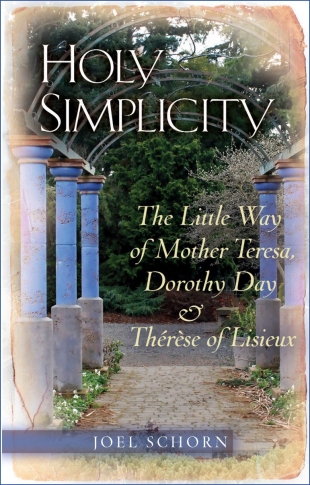"Thérèse, Mother Teresa and Dorothy Day all started small, and smallness continued to guide their lives and work. In their valuing of small things, they transformed the little into the great — without losing the humble character of the little things. Littleness became greatness because it remained little. They lived the words of the Gospel: 'Whoever wishes to be great among you must be your servant, and whoever wishes to be first among you must be your slave; just as the Son of Man came not to be served but to serve' (Matthew 20:26-28), and, 'Many who are first will be last, and the last will be first' (Mark 10:31).
"We must be careful not to see in Thérèse's intent of 'always doing the tiniest things right' a recommendation of perfectionism or a constant fear of making mistakes. Rather she meant to give herself to every task or encounter with another and to do things well for the sake of generosity and love. Her life — and the example she offers — meant first of all paying attention to the small tasks that make up a day.
"Mother Teresa had a similar sense of doing things well and so glorifying God. Moreover, she did not reserve this awareness to works of mercy or spiritual pursuits.
" 'Her life was made up of doing . . . small things. . . . These weren't chores for her, but little gifts of herself, things she did for Jesus. Everything we do, she said, . . . can be done for the love of Jesus, can be offered as something beautiful for God. The whole day can be a prayer, a dialogue with God. She asked, "Do you play well? Sleep well? Eat well? These are duties. Nothing is small for God." '
"When she met the English cricket player Bob Taylor, she told him, 'You must play this game of yours simply to the best of your ability, for if you are doing your best you are pleasing mankind and thus you too are doing God's work.'
"Dorothy Day also recognized the importance of doing small, everyday things well, and she came to this notion — and Thérèse's little way — from her contemplation of the great mass of human problems and sins. What to do under the crushing weight of the world's troubles, on which the efforts of those seeking the good do not seem to have much effect?
" 'I was all the more confirmed in my faith in the little way of St. Thérèse,' Dorothy wrote. 'We do the things that come to hand, we pray our prayers and beg also for an increase of faith — and God will do the rest.' The way to deal with big problems was not with big solutions but by doing little things that add up to big things.
"Attentiveness to the value of investing small tasks with care means a different view of time as well. We tend to think of time as a commodity — and a very limited one at that. We try to cram as many activities as we can into our waking hours, and the clock is always ticking. But if we look at time as holy time, our use of it changes. We can 'invest' it rather than just use it up. Giving a worthy task the time it needs, or doing something that may seem like a 'waste' of time, can produce surprising results.
" 'The same principle always worked,' Dorothy wrote:
" 'If we are rushed for time, sow time and we will reap time. Go to church and spend a quiet hour in prayer. You will have more time than ever and your work will get done. Sow time with the poor. Sit and listen to them, give them your time lavishly. You will reap time a hundredfold. Sow kindness and you will reap kindness. Sow love, you will reap love.' "
